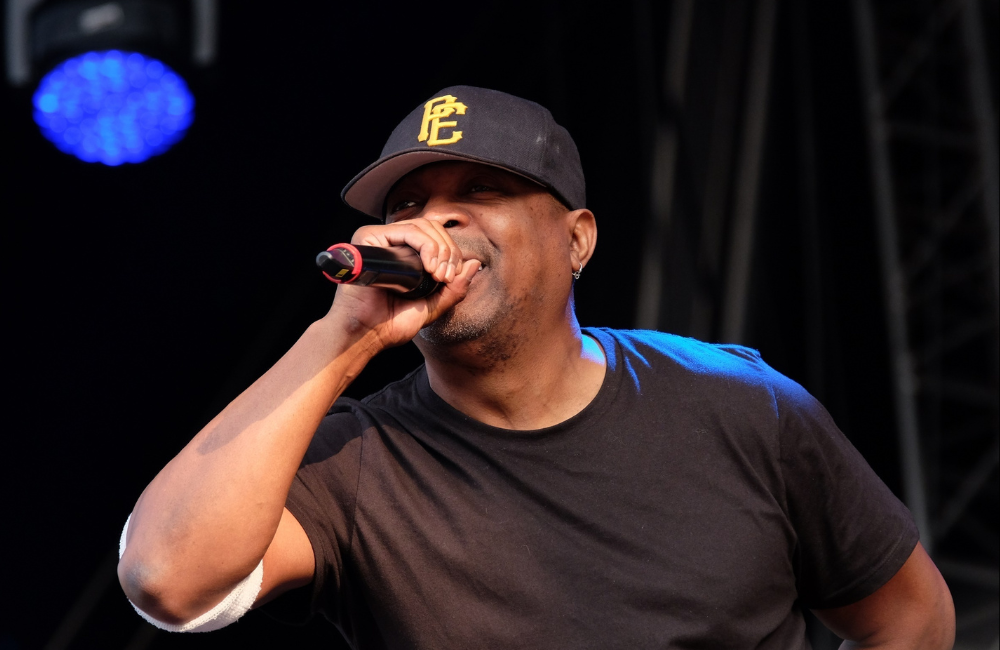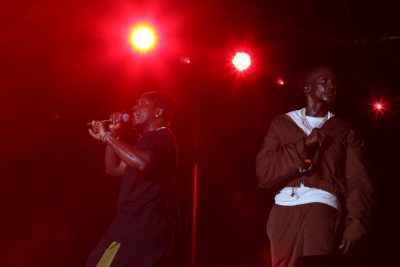The music industry’s fault lines between artistic freedom and political boundaries erupted into public view when Chuck D, the legendary Public Enemy frontman, stepped forward to defend Bob Vylan, a UK punk-rap duo facing severe professional consequences after their inflammatory Glastonbury Festival performance.
The controversy began when Bob Vylan took the stage at Glastonbury, leading thousands of festival-goers in chants of “Death to the IDF” and “Free, free Palestine.” The BBC’s live broadcast captured every word, setting off a firestorm that would reshape the band’s career within days.
The immediate aftermath
The response was swift and unforgiving. The BBC issued a formal apology, calling the chants offensive and deplorable while promising enhanced editorial oversight for future broadcasts. UTA, one of the industry’s most powerful talent agencies, severed ties with Bob Vylan immediately. Festival organizers across Europe began removing the duo from their lineups, and U.S. immigration authorities revoked their visas, effectively canceling their planned North American tour.
British authorities launched a criminal investigation to determine whether the performance violated hate speech laws, adding legal jeopardy to the band’s mounting professional isolation.
Chuck D’s intervention
Into this maelstrom stepped Chuck D, whose own career was nearly derailed by controversy when Public Enemy member Professor Griff made anti-Semitic statements. Drawing from that painful experience, Chuck D offered a nuanced defense of Bob Vylan’s artistic expression.
Chuck D explained that when people say death to a country, they’re not saying death to a people but rather death to imperialism and colonialism. His interpretation reframes the controversy as a critique of political systems rather than a call for violence against individuals.
The parallel to Public Enemy’s own crisis is striking. Professor Griff’s claim that Jews were responsible for the majority of wickedness in the world sparked widespread condemnation. Initially, Chuck D defended his bandmate, but mounting pressure eventually forced him to dismiss Griff from the group.
Bob Vylan’s defiant response
Rather than retreating from the controversy, Bob Vylan has doubled down on their message. The duo argues that their performance was intended to raise awareness about the humanitarian crisis in Gaza, not to incite violence. They contend that the intense backlash serves as a distraction from the underlying issues they sought to highlight.
This stance reflects a broader tension within contemporary music, where artists increasingly use their platforms to address political issues, often at significant personal and professional cost.
Music as political weapon
The controversy touches on music’s enduring role as a vehicle for social change. From the protest songs of the civil rights movement to contemporary artists addressing police brutality and systemic racism, musicians have long served as society’s conscience. However, the commercial music industry’s response to political expression has grown increasingly cautious.
Chuck D’s defense of Bob Vylan reflects his belief that artistic expression should not be constrained by political considerations. He emphasized that people have to be able to fight for peace and love by any means necessary, echoing the philosophical foundations that have guided his own career.














